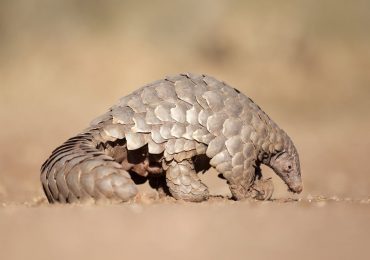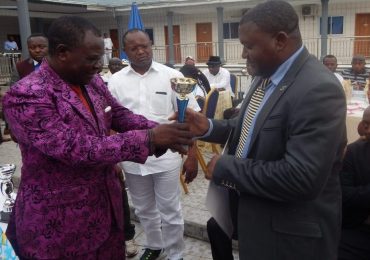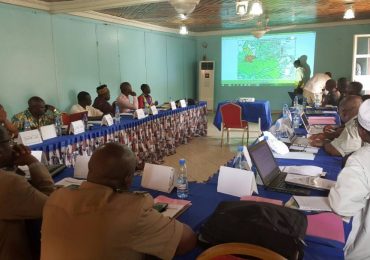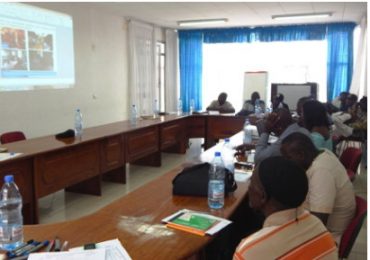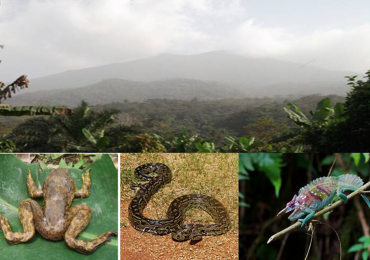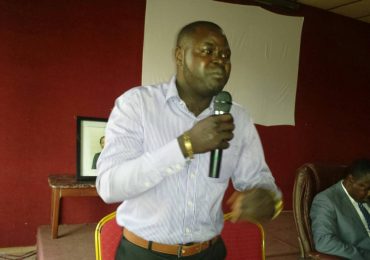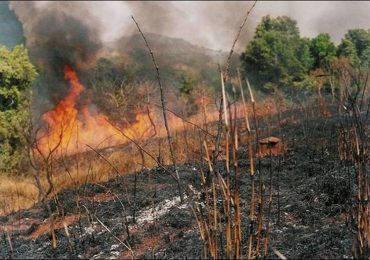Civil Society Organisations (CSOs) in Cameroon have questioned why they and the local communities are not involved in the development of documents related to REDD+ projects. According to them, most national documents and project proposals are developed from their ideas and decisions, yet they are seldom involved during implementation. The Civil Society actors raised the concerns during a conference at the Buea Parliamentary Flats, October 12 – 13, 2015 under the auspices of the National Platform of Civil Society Networks on REDD and Climate Change (NP REDD+&CC) ahead of the Conference of Paris (COP 21- 2015).
By Mkong Immaculate

The President of Southwest Civil Society Organizations (SWECSON), Louis Nkembi, was particularly worried about the non-consideration of Civil Society policies in the development of REDD+ Projects.
He said the Emissions Reduction Program (ERP) supports only five selected countries with which it signs agreements based on their efforts in reducing emissions.
“Since Cameroon is not yet one of these countries, what is the guarantee that it will be selected?” asked Nkembi.
The response was that some countries like Congo and the Democratic Republic of Congo are already benefiting from the UN REDD+ because their projects are sponsored UN by experts with or without the opinion of CSOs.
Cameroon’s process, on the other hand, is a little slow because it tries to consider the opinion and role of all actors involved. A proposal has been submitted by the Cameroon government pending approval.
Climate change, caused by the concentration of Green House Gasses (GHGs) like carbon dioxide and methane in the atmosphere, is a global problem and efforts towards its mitigation always receive support from all levels. However, the challenges are many; the role of stakeholders in 21st century debate on climate change issues has remained the bone of contention in both national and international levels.
After a long debate about Cameroon’s position on REDD+ and the 21st Century Climate Change debate, participants agreed that the country would stand for the following; to ensure the development of local and national, scientific and technical knowledge systems on the capacities of indigenous groups, women, youths and national experts in ways that can be verified; to institute effective communication systems about all REDD+ activities by public and private actors in order to ensure transparency, support rule of law and respect of agreements undertaken; to develop and institute financial mechanisms and products which ensure timely availability of resources to small, medium sized and Civil Society organizations which exempts them from constraining fiscal instruments and recognizes their comparative and competitive advantages.
Other strategies included the institution, promotion and adaption of land tenure policies, actions and measures which support and enhance local level land use and livelihood particularly by women, and reduces carbon emissions; the use of the Green Fund to help prevent climate change issues in the whole of Cameroon and not just the North.
These points would be submitted to government for further processing. Participants left the workshop seemingly satisfied that their ideas had been documented.
It was disclosed during the conference that the National REDD+ strategy has received financial support from the World Bank and the German Corporation-KFW, to prepare the Readiness Preparation Proposal (R-PP), strategic plan and do capacity building as well as recruit experts.
The R-PP is a preparatory document for REDD+ which was validated in January 2013. Since June 2014, Cameroon has been engaged in the elaboration of the national strategy and submitted the Emissions Reduction Programme Idea Note (ER-PIN) to the Forest Carbon Partnership Facility (FCPF) in April 2015.
The NPCSN-REDD+CC was created in July 2011 to serve as an inclusive and consultative organ. It is presided by three elected networks; the Network of African Women for Community Forest Management (RECAFOF), Community Forest Network (RFC) and the Mbororo Social and Cultural Development Association (MBOSCUDA).



